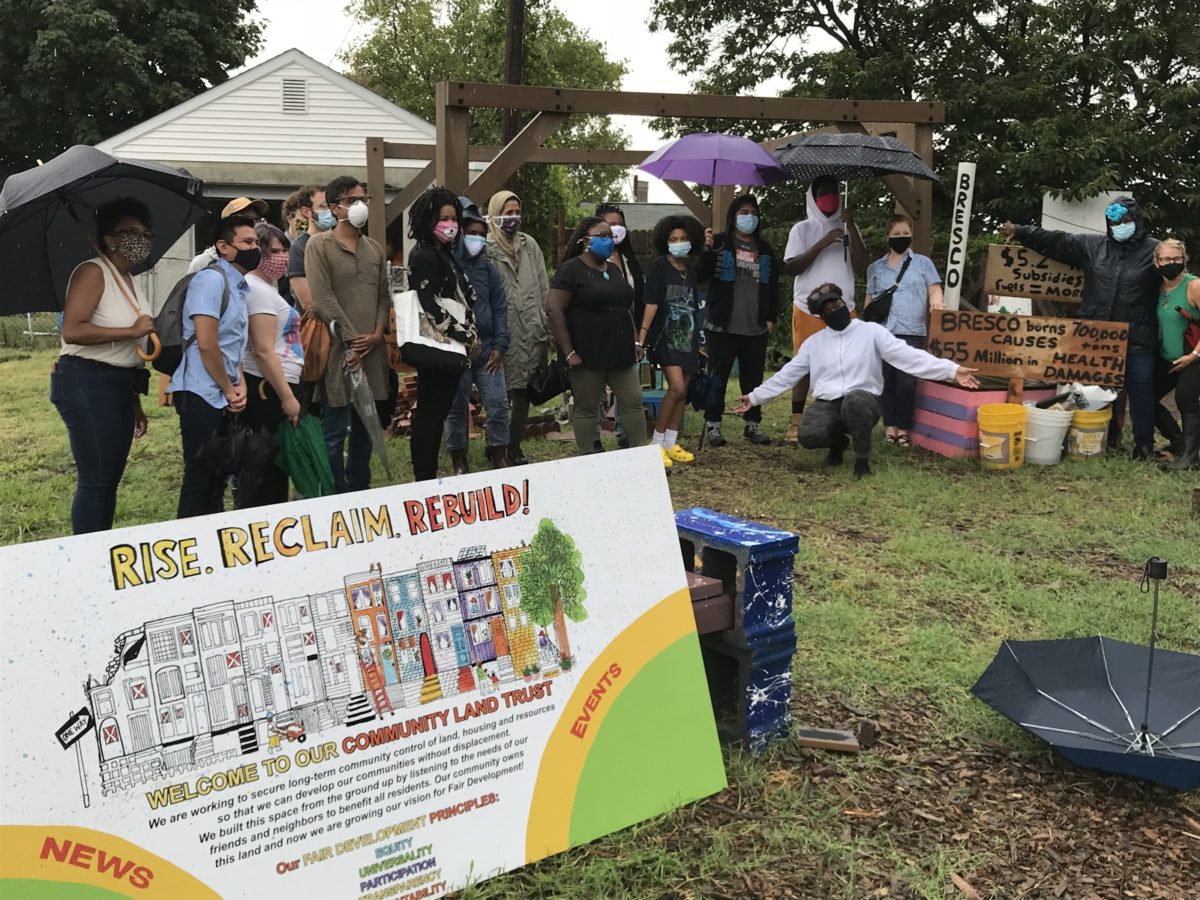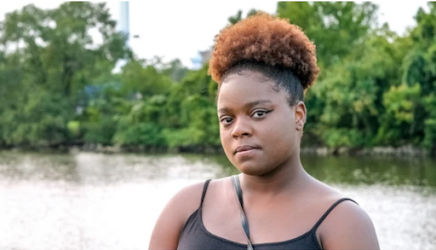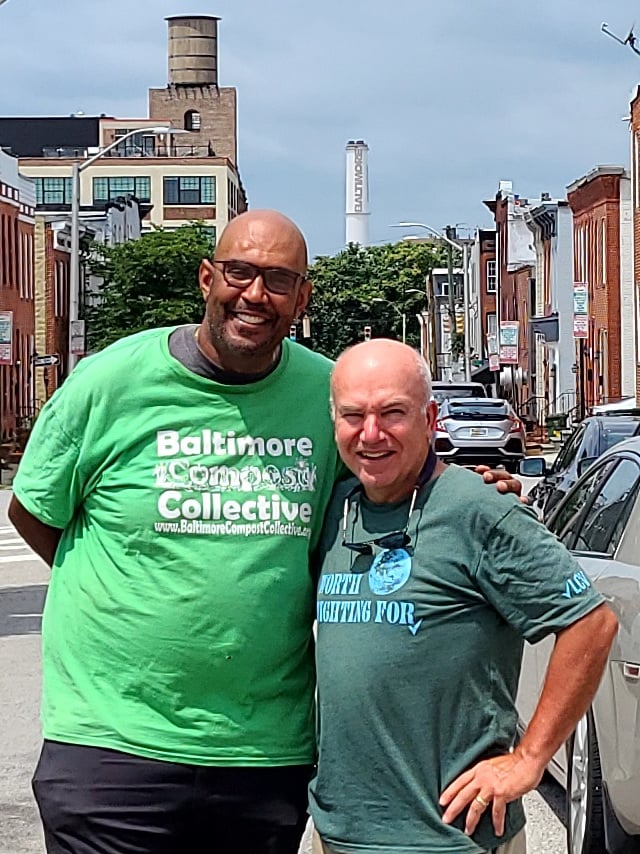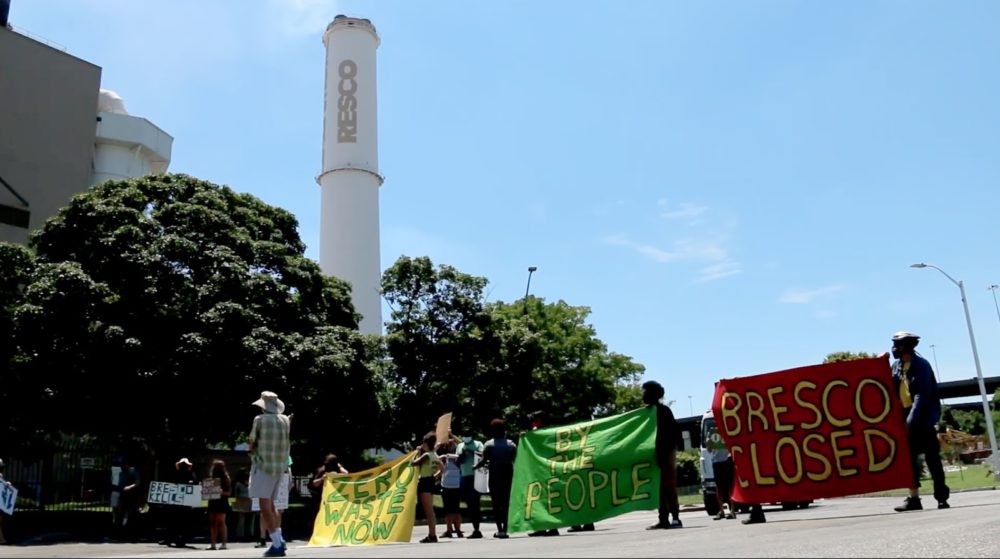The Baltimore region ranks among the worst in the U.S. for air pollution. Baltimore has two active trash incinerators and decades of pollution from both active and decommissioned industrial factories. A study by the Chesapeake Bay Foundation in 2017 found air quality in the region was ranked moderate or worse one of every three days, according to the EPA’s Air Quality Index. The same study notes poor air quality triggers asthma and can cause other health issues. Little wonder then that children in Baltimore City have asthma at twice the rate of the rest of the country, and the hospitalization rate for pediatric asthma is one of the highest in the nation, as a 2017 report by the Environmental Integrity Project showed.
The private-equity-owned Bresco/Wheelabrator incinerator—recently rebranded, or greenwashed, as WIN Waste Innovations—is alongside six communities of color and low-income communities, which fits a pattern of environmental and social injustice around the world. The Bresco incinerator has been burning around 700,000 tons of waste every year for 35 years and is the city’s single worst air polluter. The Chesapeake Bay Foundation study found that the illness and ailments caused by air polluted by the incineration alone cost $55 million a year in health damages to residents. This is just one of the heavy costs dumped on Black and poor residents by a private corporation. Because Maryland classifies incineration as recycling, Bresco receives state subsidies for renewable energy–nearly $10 million over the past six years. In addition, Baltimore pays an extra $52 per ton to burn trash.
Community Impact

Marvin Hayes, an Open Society Institute-Baltimore fellow and manager of the Baltimore Compost Collective, is on a mission to clear the air by reducing the amount of food waste that is incinerated in Baltimore every day.
“When I do Composting Workshops at schools, I ask if they are affected by asthma and cancer. The response is that 98% of the students have asthma, and several of their family members have cancer. At this point, to illustrate the effects to me, the teacher opens a desk drawer, and pulls out a storage bag full of inhalers. Most of these schools can’t field a youth athletic team due to the students having compromised respiratory issues.”
Baltimore City has a decades-long addiction to burning waste, costing lives and worsening the health of our planet. But communities and workers who have lived through the worst of this toxic relationship are taking the lead to create a zero-waste system to restore communities and our planet, and create jobs.
Community action
Channeling a decade of research and advocacy for alternatives to a failed trash and waste system, in 2020, residents–along with Baltimore’s Zero Waste Coalition, city elected officials, and leading experts–took the initiative to create Baltimore’s Fair Development Plan for Zero Waste. The plan clarified that Baltimore can break free from incineration and landfilling by developing compost, recycling, and re-using systems–and can create nearly 2,000 jobs in the process. Furthermore, the plan emphasized a framework to ensure direct community, labor, and environmental equity. Despite having this community-led blueprint in hand to transition away from incineration, in November of 2020, Baltimore’s outgoing and unelected Mayor Jack Young handed Bresco a new lucrative 10-year contract in the final days of his administration. This betrayal of democracy has only led to communities working harder to fight to starve and close down this incinerator. In 2021, the Zero Waste Plan was adopted by the City Council, championed by Baltimore’s new Mayor Brandon Scott.
Food and organics makeup at least 40% of the waste stream. Despite this, Baltimore lacks any local permitted composting infrastructure. This means around 280,000 of tons of food waste every year in the Greater Baltimore area are burned and buried. In 2021, a new state law aims to help stop this climate crisis-inducing practice by requiring large food-waste generators (entities generating at least two tons of organic waste per week) to stop burning or burying organics if a compost facility exists within 30 miles. Sadly, no such facility exists in Baltimore.
Incinerated food pollutes the air and makes us sick; it is also a major source of carbon dioxide, the principal greenhouse gas causing the climate crisis. Landfills are little better; the food waste decomposes and releases methane, a greenhouse gas, into the atmosphere.
Hayes says: “Our motto is ’Compost: Learn, so we don’t have to burn.’ We can do so much through composting. We can help young people develop job skills and become environmental champions. And we can help Baltimore get closer to zero waste.”
Community demands
Food waste is the literal “low-hanging fruit” of reducing incinerator burning. We are demanding that the city government take these steps to start the transition from a burning-and-burying solid waste system to a zero-waste approach:
- Improve the local compost infrastructure and hauling at scale to take all food out of the waste stream, starting with the educational and institutional sectors
- Secure federal infrastructure funding for Baltimore to support local green infrastructure, starting with a compost facility to meet the challenge
- Baltimore’s anchor institutions–universities, hospitals, governmental institutions, and others–must partner with the city by committing to a procurement process to divert all food waste from incinerators and landfills to a new local compost infrastructure
This community transition to zero waste is critical because people are losing their health (their lives, really), and we are all losing time to have a planet to call home. We have a clear step in front of us to make a significant impact that will require collaboration and coordination across Baltimore’s leading anchor institutions and local government officials. A successful just transition to zero waste means cleaner communities and good green jobs. It means our right to breathe clean air is being respected. It also means an end to the continued public subsidy to feed corporate greed built off the destruction of resources and lives. Let’s work together and make Baltimore a true model of community-led zero waste!



